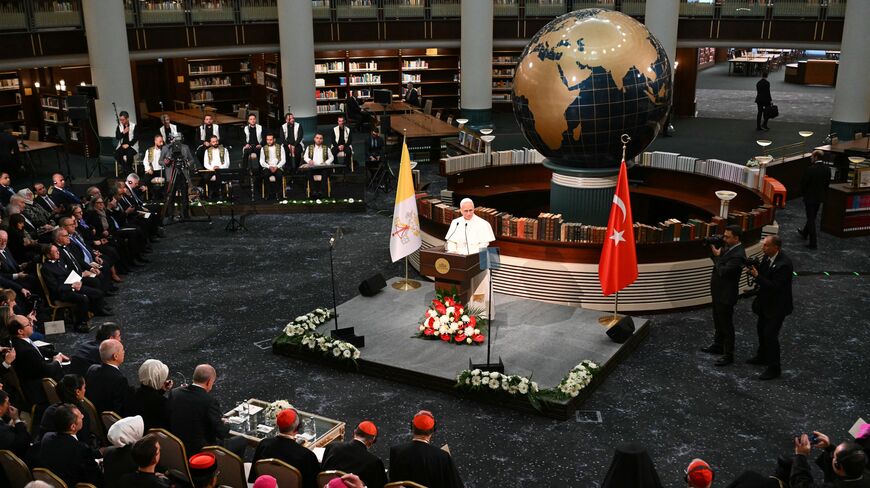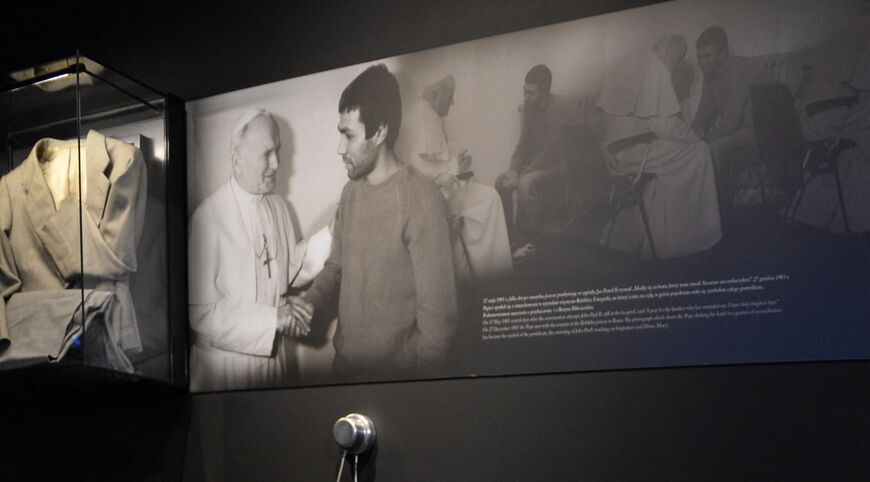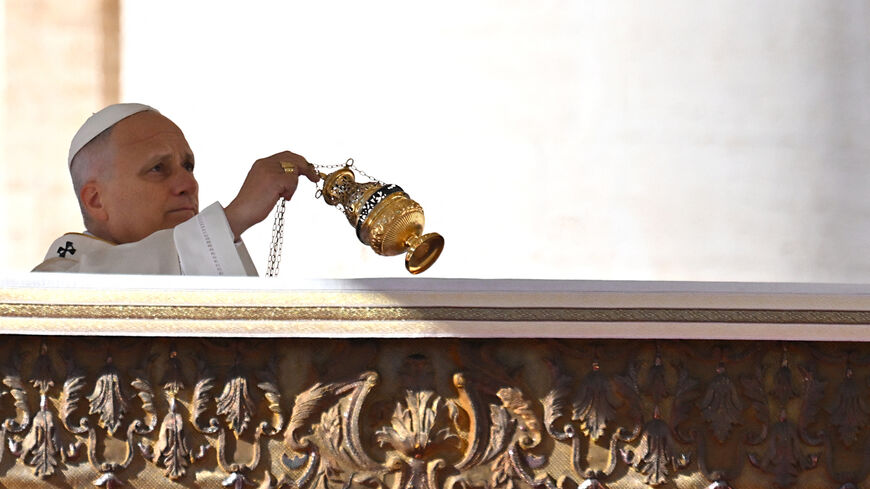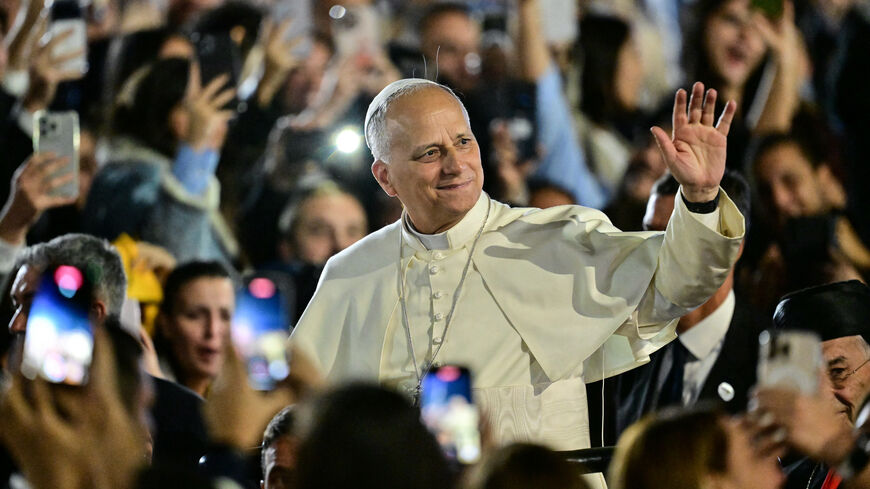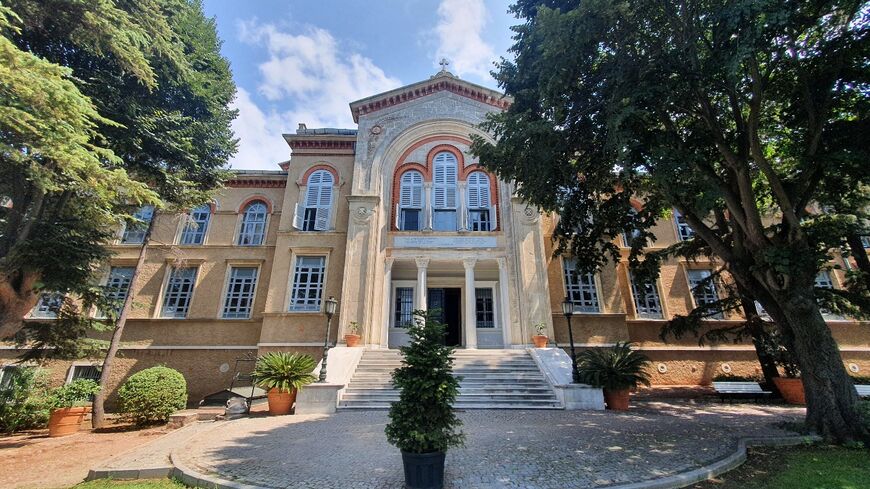In first foreign visit, Pope Leo meets Erdogan, urges Turkey to uphold pluralism
On his inaugural foreign visit to Turkey, Pope Leo called for respect for pluralism after meeting with the Turkish president.
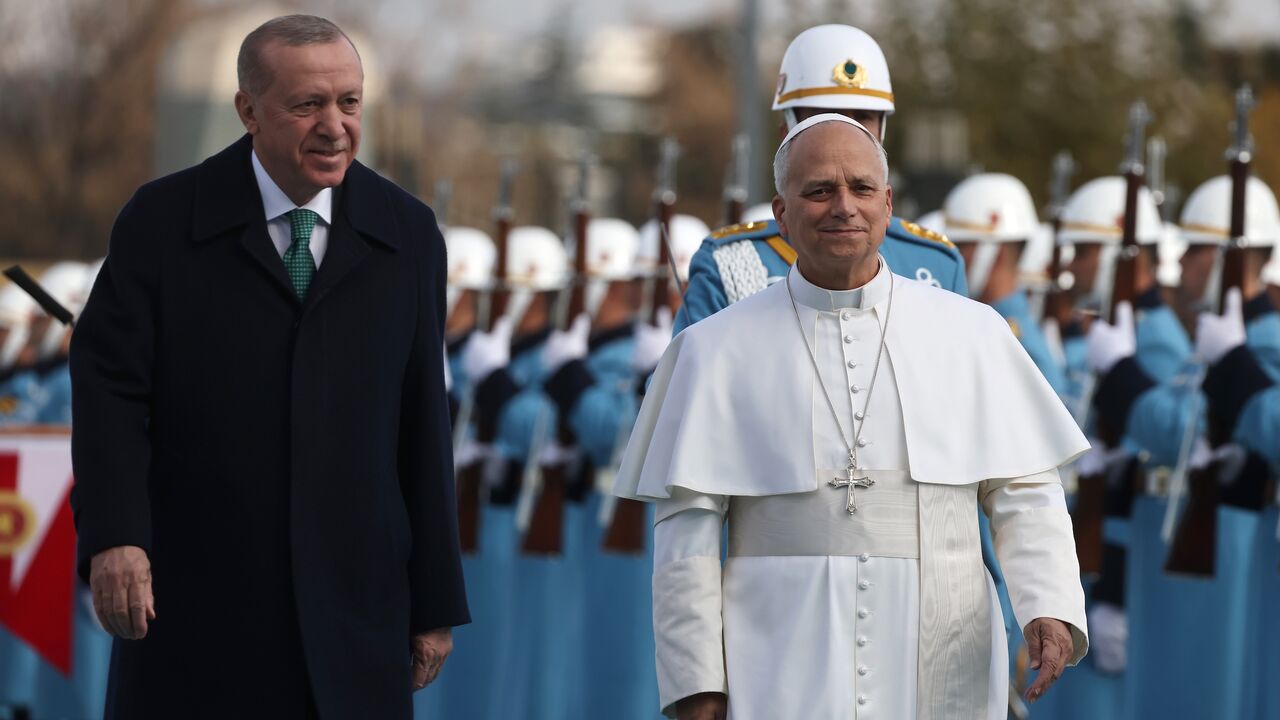
ANKARA — Pope Leo XIV met with Turkish President Recep Tayyip Erdogan on Thursday in Ankara, urging Turkey to respect pluralism.
“A society is alive if it has a plurality, for what makes it a civil society are the bridges that link its people together,” Leo said in a televised address at the Turkish Presidential Complex.
The 68-year-old pontiff is making his first official foreign visit since being elected in May. His stop in Turkey is part of a two-country tour that will also take him to Lebanon.
Erdogan welcomed the pope in an official ceremony, before the pair held a roughly one-hour meeting. The two then moved to the library inside the Presidential Complex for an on-camera ceremony, during which a chorus performed “God Is Good,” a song by the American Christian singer Don Moen, as well as an Islamic hymn. After that, Erdogan and Leo delivered separate speeches.
The pope in his address highlighted Turkey’s religious diversity, noting its Catholics, Orthodox Christians, Jews, Protestants, Muslims and other religious groups, and called for greater intercultural dialogue.
“You have an important place in both the present and future of the Mediterranean and of the whole world, above all by valuing your internal diversity,” the pope said. “I willingly assure you that Christians desire to contribute positively to the unity of your country. They are and feel part of Turkish identity.”
Religious and political: pope urges tolerance
The pope then noted that pluralism extends beyond religious diversity to also encompass social and political dimensions.
“We are all children of God, and this has personal, social, and political implications,” he said, adding that respect for pluralism was “a great challenge, which must reshape local policies and international relations.”
Leo’s visit comes at a highly polarized moment in Turkey, amid a crackdown that has seen more than 100 members of the main opposition Republican People’s Party, including Istanbul Mayor Ekrem Imamoglu, who has been imprisoned since March on charges that government critics say are politically motivated. The government, in turn, argues that the judiciary is independent.
Erdogan thanks pope for Palestinian cause
In addition to Turkey’s political tensions, the visit also comes as the region is shaken by overlapping wars and deepening instability. “We are now experiencing a phase marked by a heightened level of conflict on the global level,” the Pope said. “We must not give in to this!”
While the Pope stopped short of naming any conflict, Erdogan used his speech to thank him for his long-standing support for the Palestinian cause.
“We have always appreciated the steadfast stance of our esteemed guest and his predecessor, particularly regarding the Palestinian issue,” he said, in a reference to Pope Francis, whom Leo succeeded in May.
During the Israel-Hamas war, Francis maintained frequent contact with a Gaza parish through the only Catholic church in the Palestinian enclave. After Israeli strikes on the church in July that killed three people, Pope Leo expressed “deep sadness” and called for an immediate ceasefire.
Pope’s 1981 attacker seeks meeting with Leo
The four-day visit to Turkey will also take Leo to Istanbul and Iznik, in the northwest. On Friday, in Iznik, the ancient site of Nicaea, he is scheduled to attend a commemoration marking the 1,700th anniversary of the First Council of Nicaea, a landmark gathering during which early Christian leaders agreed on the fundamental doctrines of the faith.
Meanwhile, as Pope Leo’s visit proceeds under heightened security, Mehmet Ali Agca, the Turkish far-right militant who shot and wounded Pope John Paul II in 1981, traveled to Iznik ahead of the pope’s arrival. On Thursday, Agca told Turkey’s Demiroren News Agency that he wished to meet Pope Leo, but such a meeting is highly unlikely, according to Turkish officials.
Agca previously visited the Vatican in 2014, laying flowers at the tomb of John Paul II, who had forgiven and met him at an Italian prison. Agca served 19 years in prison in Italy after he shot John Paul II before being deported to Turkey, where he served another decade and was released in 2010 for assassinating prominent Turkish journalist Abdi Ipekci.
No Hagia Sophia visit in Istanbul
Leo's last stop will be Istanbul, where he is scheduled to attend an ecumenical prayer service with Ecumenical Patriarch Bartholomew I, the spiritual leader of some 300 million Orthodox Christians worldwide. Turkey does not recognize the patriarch’s ecumenical status, maintaining that he serves only as the head of Turkey’s Greek Orthodox community, in line with the 1923 Treaty of Lausanne, the founding agreement of the modern Turkish Republic. Turkey argues that recognition of ecumenical authority would infringe on its sovereignty.
Unlike that of his predecessors, Pope Leo’s official schedule in Istanbul does not include a visit to Hagia Sophia, a sixth-century Byzantine cathedral later turned into a museum following the founding of the modern secular Turkish Republic.
Relations between Pope Francis and Ankara had been strained after the Turkish government converted Hagia Sophia back into a mosque in 2020. “My thoughts go to Istanbul. I think of Santa Sophia, and I am very pained,” the late pontiff said at the time. Instead, Pope Leo will visit Istanbul’s Blue Mosque.
Also on Leo's schedule are interfaith meetings with Muslim leaders, and gatherings with local church leaders and Christian communities in Istanbul. He will lead a Holy Mass before departing for Lebanon on Sunday for the second leg of his tour.
This is a developing story and has been updated.

